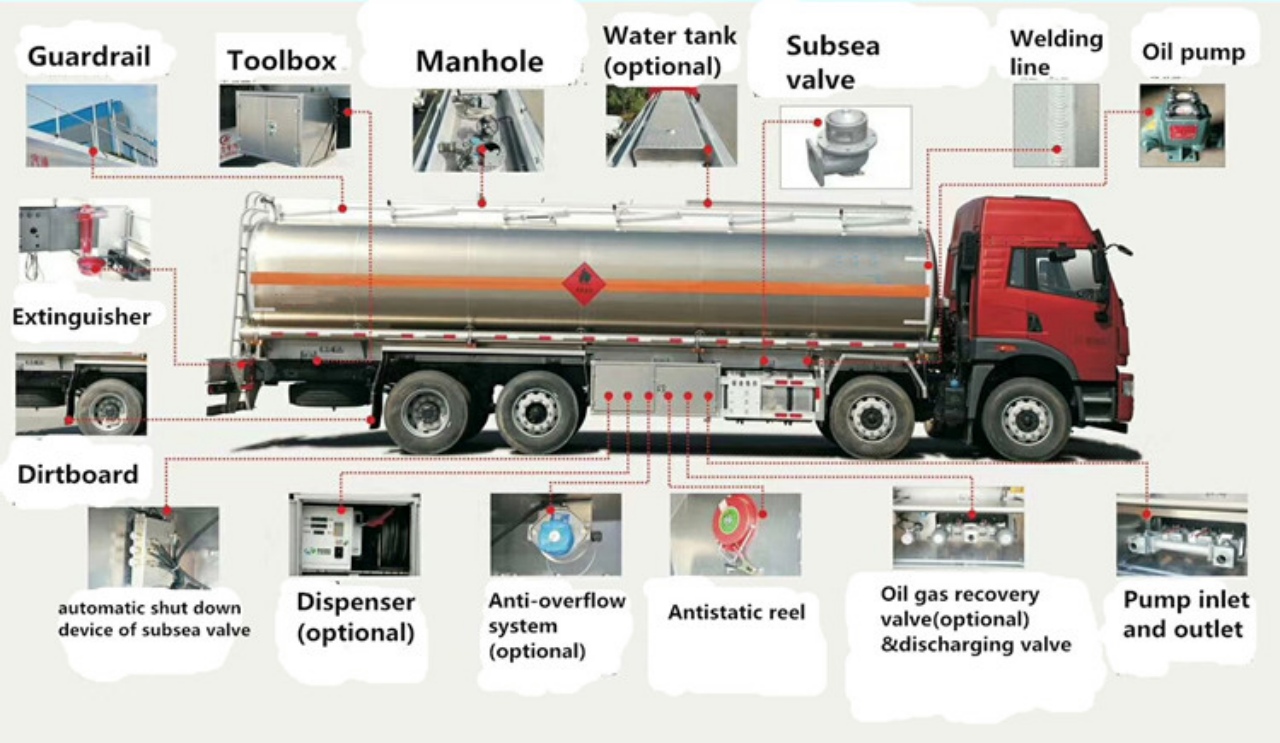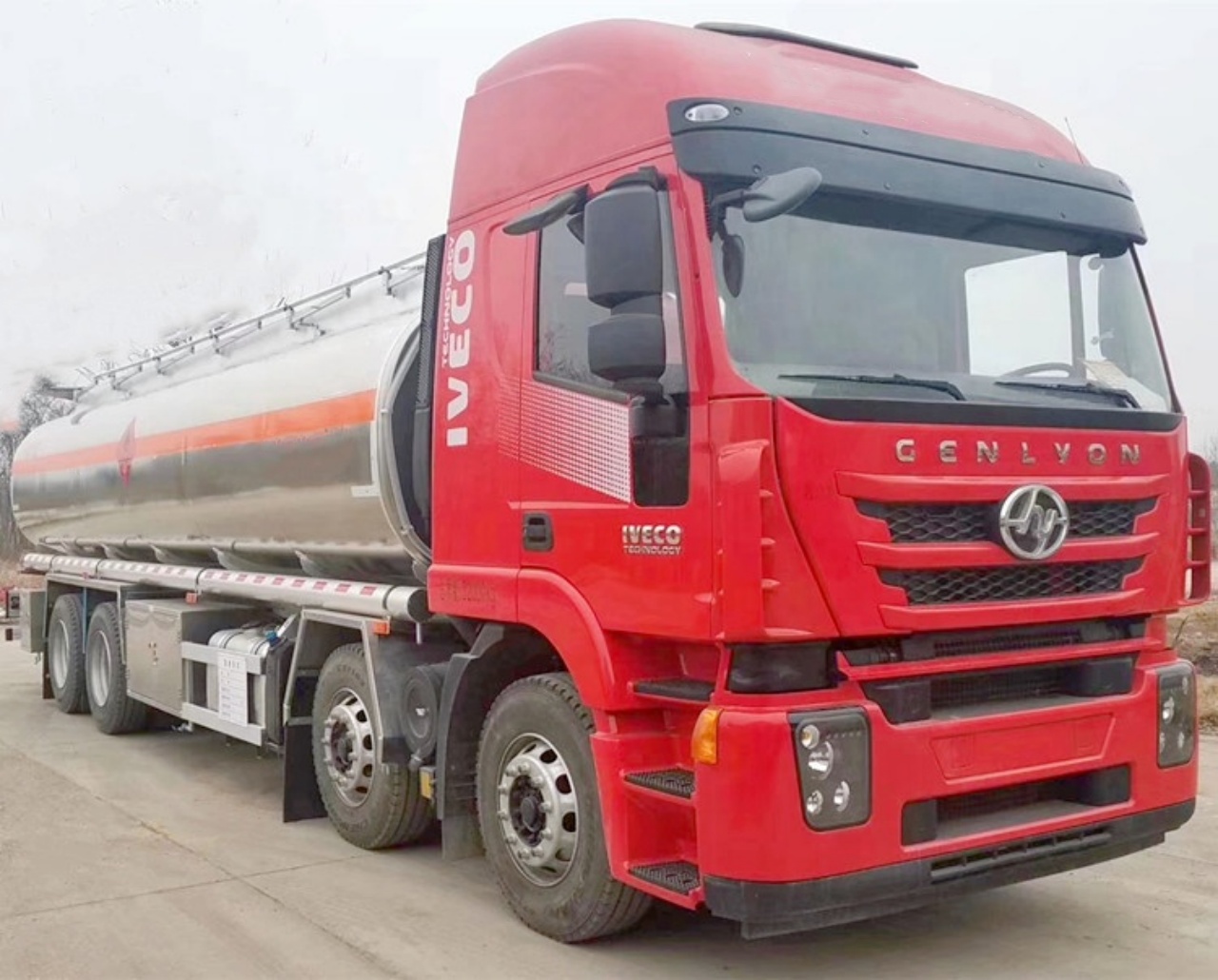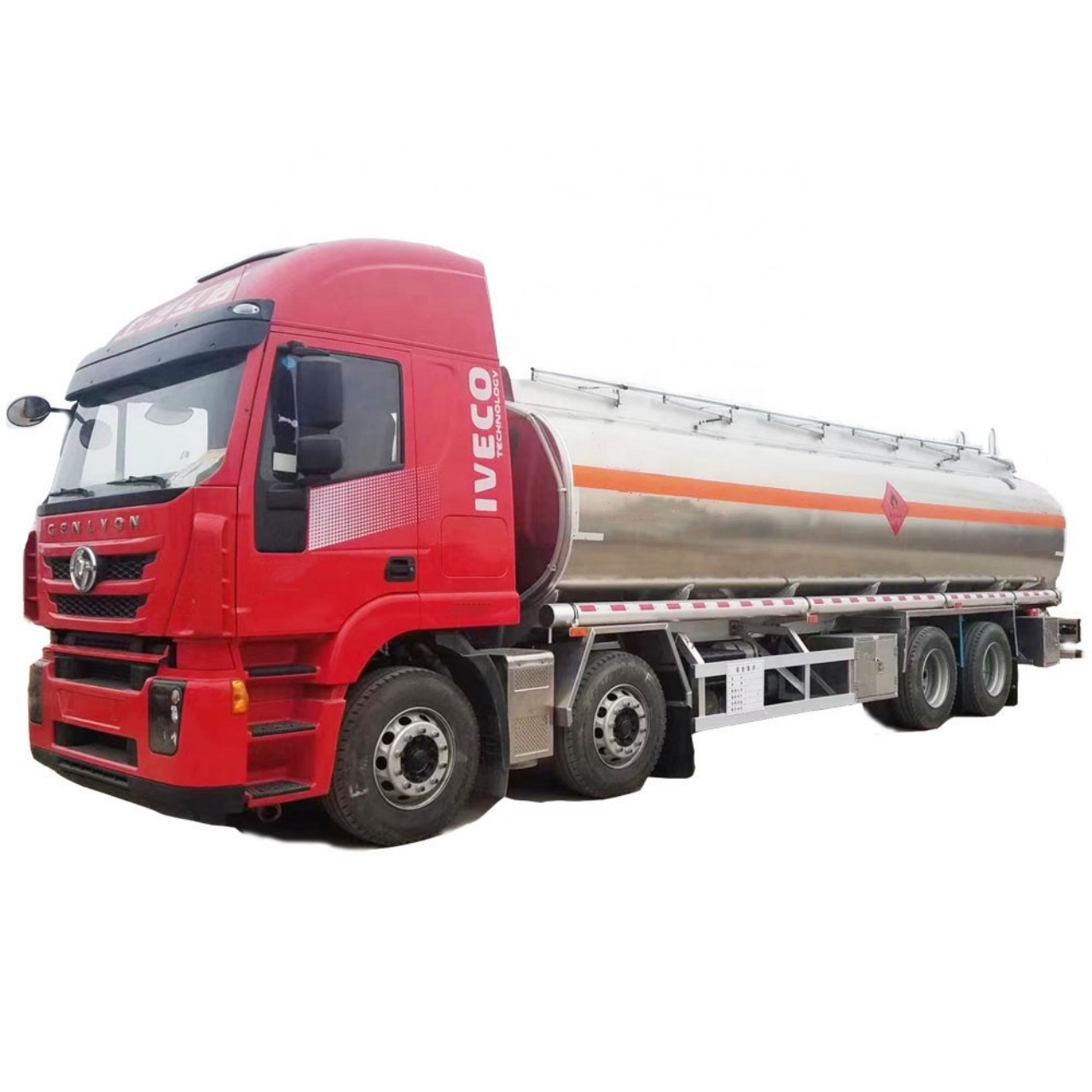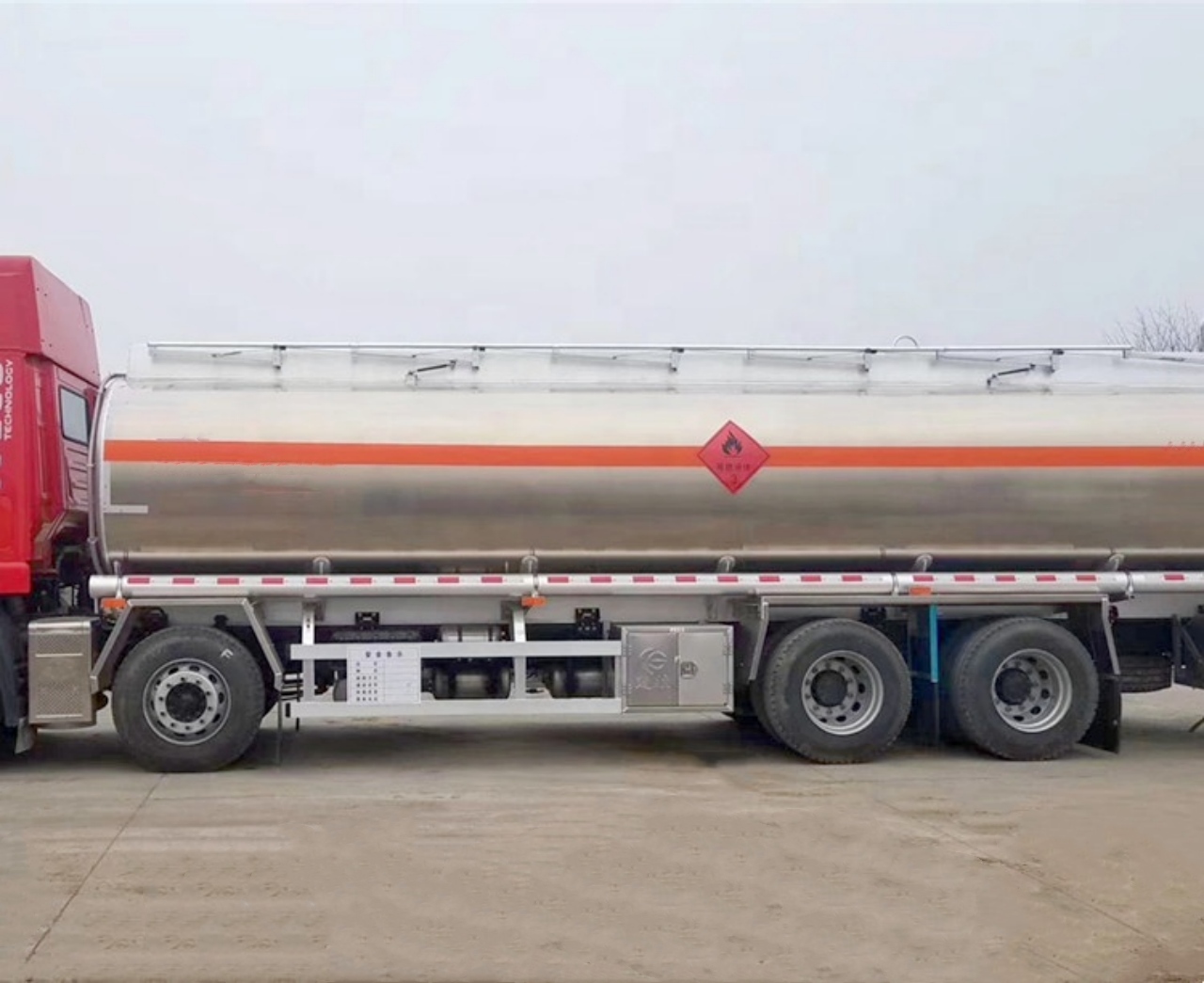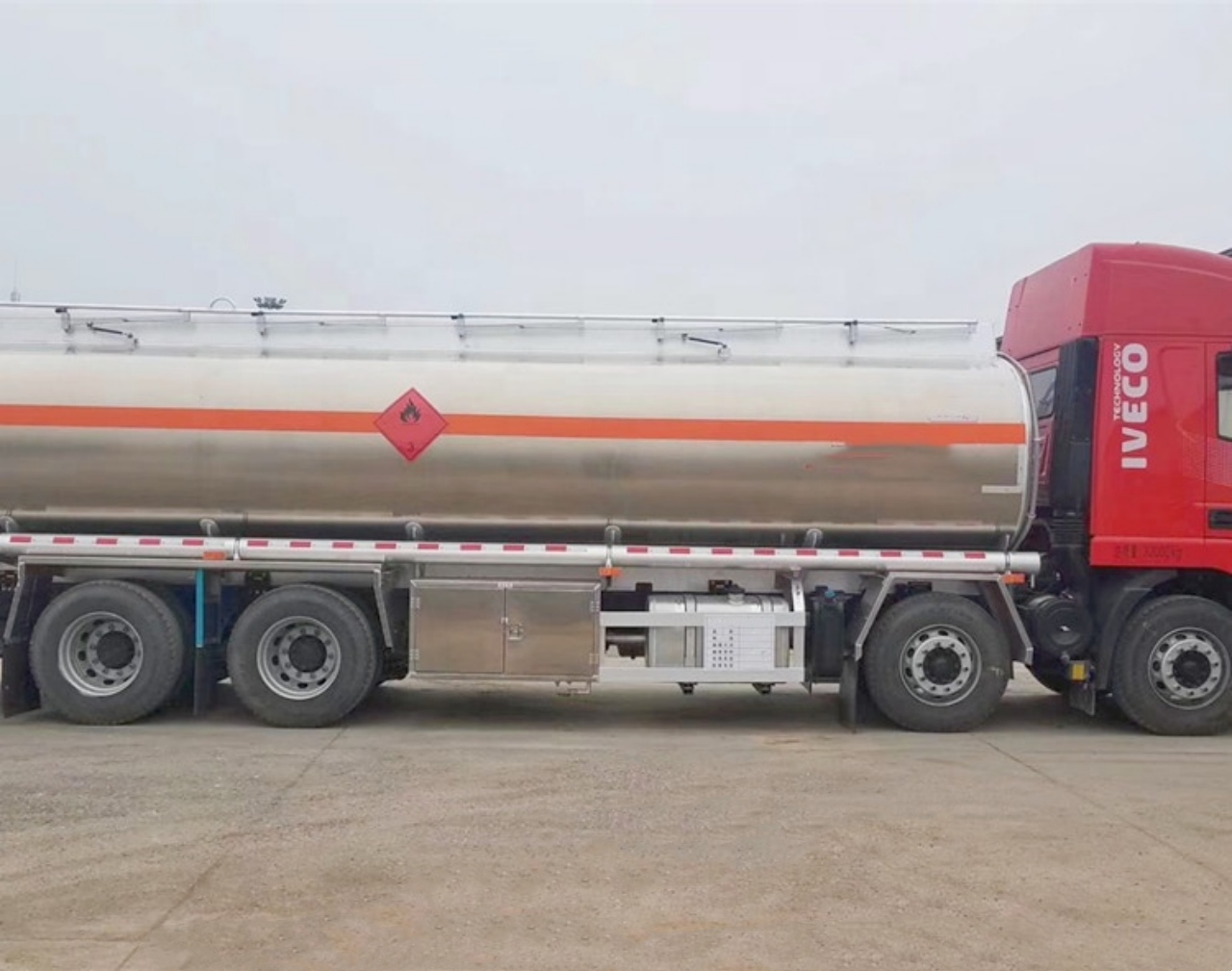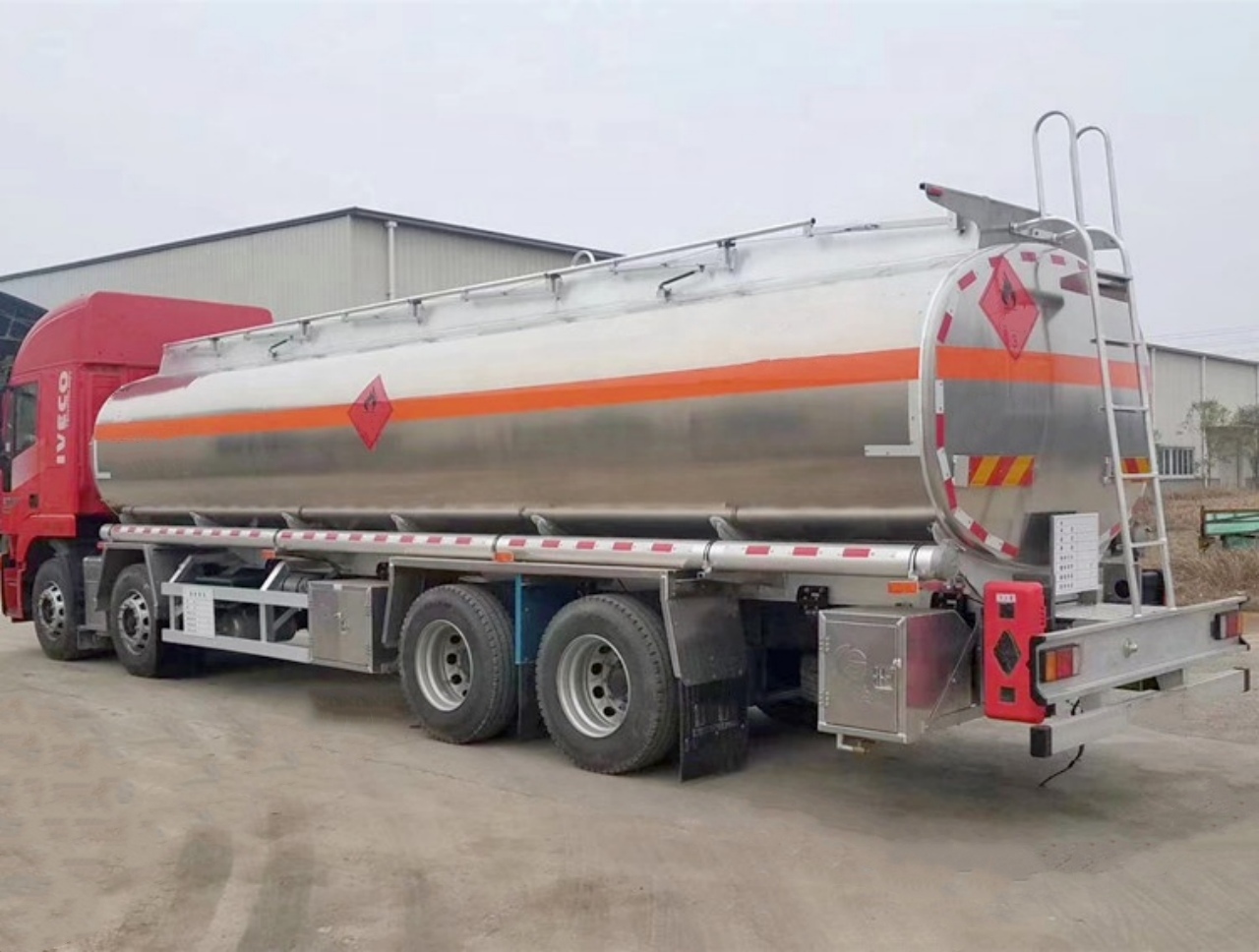Tank trucks, also known as tanker trucks, are specialized vehicles designed to transport liquids, gases, or dry bulk cargo in large quantities. These trucks play a critical role in a wide variety of industries, including petroleum, agriculture, food processing, sanitation, construction, and chemical manufacturing. With their distinct cylindrical tanks mounted on chassis, tank trucks are built for safety, efficiency, and compliance with stringent regulations. In this article, we’ll explore the different uses of tank trucks, the types of materials they carry, and how they contribute to modern industry and logistics.
1. Transporting Petroleum Products
One of the most common uses of tank trucks is transporting petroleum-based fuels such as gasoline, diesel, kerosene, and aviation fuel. These fuel tankers are essential to the oil and gas supply chain, delivering refined products from refineries to fuel stations, airports, and industrial sites.
Fuel tankers are typically built with aluminum or steel and are designed with multiple compartments to carry different types of fuel in a single trip. Safety features such as emergency shut-off valves, anti-static systems, and vapor recovery units are integrated to minimize risks associated with flammable materials.
2. Carrying Chemicals and Hazardous Materials
Chemical tank trucks are designed to transport corrosive, toxic, and flammable substances. These include acids like sulfuric acid or hydrochloric acid, solvents, pesticides, and industrial chemicals used in manufacturing.
Given the potential dangers, chemical tank trucks are constructed from corrosion-resistant materials such as stainless steel or lined carbon steel and often include insulation or heating systems. They must also comply with hazardous material transport regulations, including placarding, driver training, and emergency response protocols.
3. Food-Grade Liquid Transportation
Tank trucks are also widely used in the food and beverage industry for transporting bulk liquid products. These food-grade tankers carry items such as:
- Milk and cream
- Juice and concentrates
- Vegetable oils
- Liquid sweeteners (e.g., corn syrup, molasses)
- Wine, beer, and spirits
Food-grade tank trucks are typically made of stainless steel and feature sanitary fittings to ensure hygienic conditions. The interior of the tanks is polished and cleaned thoroughly to prevent contamination between different loads. Some trucks are even equipped with refrigeration units to maintain the integrity of perishable liquids during transport.
4. Hauling Dry Bulk Materials
Dry bulk tank trucks, though slightly different in structure, are considered part of the tank truck family. They are used to transport granular or powdered materials such as:
- Cement
- Sand
- Flour
- Sugar
- Plastic pellets
- Animal feed
These materials are usually discharged through pneumatic systems, which use pressurized air to blow the material into silos or storage bins. This method reduces manual labor and exposure to dust or hazardous particles.
5. Water Delivery and Spraying
Water tank trucks are indispensable in agriculture, construction, and municipal services. Their uses include:
- Irrigating crops or landscaping
- Dust suppression on construction sites or unpaved roads
- Supplying potable water in remote areas or during emergencies
- Firefighting (especially in rural or forested areas)
- Cleaning streets and sewer systems
Water tank trucks may be equipped with spray bars, hoses, pumps, and valves to facilitate various applications. They range from simple gravity-fed systems to pressurized delivery setups with high flow rates.
6. Transporting Liquid Asphalt and Emulsions
In road construction and maintenance, specialized tank trucks are used to carry liquid asphalt, bitumen, and asphalt emulsions. These trucks often have heating systems to keep the materials at high temperatures, preventing solidification during transport.
They may also come equipped with spray systems for direct application during paving or repair operations. These types of tankers are critical in supporting the construction of durable roadways and highways.
7. Septic and Waste Collection
Vacuum tank trucks, commonly known as septic trucks or sludge tankers, are designed to collect and transport liquid waste from septic systems, grease traps, and portable toilets. They use vacuum pumps to extract waste into sealed tanks, which are then transported to treatment facilities or disposal sites.
These vehicles are essential to sanitation services and environmental protection, especially in rural areas or events that rely on temporary sanitation infrastructure.
8. LPG and Cryogenic Gas Transport
Tank trucks also serve the energy sector by transporting liquefied petroleum gas (LPG), liquefied natural gas (LNG), and other cryogenic gases like oxygen, nitrogen, and argon. These materials must be kept at extremely low temperatures or under high pressure to remain in liquid form.
Cryogenic tankers are built with double-walled, vacuum-insulated tanks to maintain the required temperature and pressure. These trucks are used in industries ranging from welding and metalworking to medical and aerospace applications.
9. Emergency and Disaster Response
In emergencies, tank trucks can be quickly deployed to provide vital resources. For example:
- Fuel tankers can supply generators during power outages.
- Water tankers can deliver drinking water in disaster-stricken regions.
- Chemical tankers may be used for hazardous spill containment.
Their mobility and capacity make them invaluable tools in crisis management and disaster recovery.
10. Customization and Industry-Specific Applications
Many tank trucks are customized for specific applications. For instance:
- Milk collection trucks are fitted with onboard pumps and metering systems for efficient farm-to-dairy transfer.
- Chemical delivery trucks may include blending systems to mix products during delivery.
- Beverage tankers often require insulation and temperature control for long-distance transport.
Customization allows operators to maximize efficiency, maintain product quality, and adhere to regulatory requirements.
Conclusion
Tank trucks are a vital component of the global logistics infrastructure. Their ability to safely and efficiently transport a wide range of liquid, gaseous, and powdered materials makes them indispensable across numerous sectors. Whether delivering fuel to a gas station, supplying clean water in remote areas, or hauling hazardous chemicals under strict safety protocols, tank trucks serve a broad and essential role in the movement of critical goods.
As industries evolve and demand for specialized transport increases, the design and capabilities of tank trucks continue to advance. From environmental sustainability to digital monitoring, the future of tank trucks promises to be more efficient, safer, and more adaptable than ever before.
